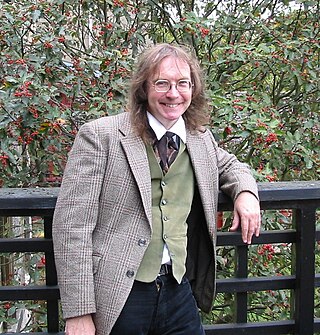Epistemology is the branch of philosophy concerned with knowledge. Epistemologists study the nature, origin, and scope of knowledge, epistemic justification, the rationality of belief, and various related issues. Debates in contemporary epistemology are generally clustered around four core areas:
Skepticism, also spelled scepticism in British English, is a questioning attitude or doubt toward knowledge claims that are seen as mere belief or dogma. For example, if a person is skeptical about claims made by their government about an ongoing war then the person doubts that these claims are accurate. In such cases, skeptics normally recommend not disbelief but suspension of belief, i.e. maintaining a neutral attitude that neither affirms nor denies the claim. This attitude is often motivated by the impression that the available evidence is insufficient to support the claim. Formally, skepticism is a topic of interest in philosophy, particularly epistemology.
Social epistemology refers to a broad set of approaches that can be taken in epistemology that construes human knowledge as a collective achievement. Another way of characterizing social epistemology is as the evaluation of the social dimensions of knowledge or information.
Theology is the study of religious belief from a religious perspective. More narrowly it is the study of the nature of the divine. It is taught as an academic discipline, typically in universities and seminaries. It occupies itself with the unique content of analyzing the supernatural, but also deals with religious epistemology, asks and seeks to answer the question of revelation. Revelation pertains to the acceptance of God, gods, or deities, as not only transcendent or above the natural world, but also willing and able to interact with the natural world and to reveal themselves to humankind.
Rationality is the quality of being guided by or based on reason. In this regard, a person acts rationally if they have a good reason for what they do or a belief is rational if it is based on strong evidence. This quality can apply to an ability, as in a rational animal, to a psychological process, like reasoning, to mental states, such as beliefs and intentions, or to persons who possess these other forms of rationality. A thing that lacks rationality is either arational, if it is outside the domain of rational evaluation, or irrational, if it belongs to this domain but does not fulfill its standards.
Philosophical skepticism is a family of philosophical views that question the possibility of knowledge. It differs from other forms of skepticism in that it even rejects very plausible knowledge claims that belong to basic common sense. Philosophical skeptics are often classified into two general categories: Those who deny all possibility of knowledge, and those who advocate for the suspension of judgment due to the inadequacy of evidence. This distinction is modeled after the differences between the Academic skeptics and the Pyrrhonian skeptics in ancient Greek philosophy. In the latter sense, skepticism is understood as a way of life that helps the practitioner achieve inner peace. Some types of philosophical skepticism reject all forms of knowledge while others limit this rejection to certain fields, for example, knowledge about moral doctrines or about the external world. Some theorists criticize philosophical skepticism based on the claim that it is a self-refuting idea since its proponents seem to claim to know that there is no knowledge. Other objections focus on its implausibility and distance from regular life.

Knowledge is an awareness of facts, a familiarity with individuals and situations, or a practical skill. Knowledge of facts, also called propositional knowledge, is often characterized as true belief that is distinct from opinion or guesswork by virtue of justification. While there is wide agreement among philosophers that propositional knowledge is a form of true belief, many controversies focus on justification. This includes questions like how to understand justification, whether it is needed at all, and whether something else besides it is needed. These controversies intensified in the latter half of the 20th century due to a series of thought experiments called Gettier cases that provoked alternative definitions.

A quiz is a form of game or mind sport in which players attempt to answer questions correctly on one or several specific topics. Quizzes can be used as a brief assessment in education and similar fields to measure growth in knowledge, abilities, and skills, or simply as a hobby. They can also be televised for entertainment purposes, often in a game show format.

Cybercrime encompasses a wide range of criminal activities that are carried out using digital devices and/or networks. These crimes involve the use of technology to commit fraud, identity theft, data breaches, computer viruses, scams, and expanded upon in other malicious acts. Cybercriminals exploit vulnerabilities in computer systems and networks to gain unauthorized access, steal sensitive information, disrupt services, and cause financial or reputational harm to individuals, organizations, and governments.

Ronald Edmund Hutton is an English historian specialising in early modern Britain, British folklore, pre-Christian religion, and modern paganism. A professor at the University of Bristol, Hutton has written over a dozen books, often appearing on British television and radio. He held a fellowship at Magdalen College, Oxford, and is a Commissioner of English Heritage.

Nicholas Paul Wolterstorff is an American philosopher and theologian. He is currently Noah Porter Professor Emeritus of Philosophical Theology at Yale University. A prolific writer with wide-ranging philosophical and theological interests, he has written books on aesthetics, epistemology, political philosophy, philosophy of religion, metaphysics, and philosophy of education. In Faith and Rationality, Wolterstorff, Alvin Plantinga, and William Alston developed and expanded upon a view of religious epistemology that has come to be known as Reformed epistemology. He also helped to establish the journal Faith and Philosophy and the Society of Christian Philosophers.

In the philosophy of religion, Reformed epistemology is a school of philosophical thought concerning the nature of knowledge (epistemology) as it applies to religious beliefs. The central proposition of Reformed epistemology is that beliefs can be justified by more than evidence alone, contrary to the positions of evidentialism, which argues that while non-evidential belief may be beneficial, it violates some epistemic duty. Central to Reformed epistemology is the proposition that belief in God may be "properly basic" and not need to be inferred from other truths to be rationally warranted. William Lane Craig describes Reformed epistemology as "One of the most significant developments in contemporary religious epistemology ... which directly assaults the evidentialist construal of rationality."
Oxford spelling is a spelling standard, named after its use by the Oxford University Press, that prescribes the use of British spelling in combination with the suffix -ize in words like realize and organization instead of -ise endings.
Religious skepticism is a type of skepticism relating to religion. Religious skeptics question religious authority and are not necessarily anti-religious but rather are skeptical of either specific or all religious beliefs and/or practices. Socrates was one of the most prominent and first religious skeptics of whom there are records; he questioned the legitimacy of the beliefs of his time in the existence of the Greek gods. Religious skepticism is not the same as atheism or agnosticism, and some religious skeptics are deists.

Analysis is a peer-reviewed academic journal of philosophy established in 1933 that is published quarterly by Oxford University Press on behalf of the Analysis Trust. Prior to January 2009, the journal was published by Blackwell Publishing. Electronic access to this journal is available via JSTOR (1933–2013), Wiley InterScience (1996–2008), and Oxford Journals (2009–present). The journal publishes short, concise articles in virtually any field of the analytic tradition.
In religious studies and folkloristics, folk religion, popular religion, traditional religion, or vernacular religion comprises various forms and expressions of religion that are distinct from the official doctrines and practices of organized religion. The precise definition of folk religion varies among scholars. Sometimes also termed popular belief, it consists of ethnic or regional religious customs under the umbrella of a religion; but outside official doctrine and practices.

Elaine Howard Ecklund is a published author and professor of sociology at Rice University. She is also the director of the Boniuk Institute for Religious Tolerance at Rice, a Rice Scholar at the James A. Baker III Institute for Public Policy, and the president of the Religious Research Association. Her research focuses on institutional change in the areas of religion, immigration, science, medicine, and gender.
ITNOW is a bimonthly magazine aimed at IT professionals that is published on behalf of the British Computer Society (BCS) and sent to all its members. The magazine was started with the title The Computer Bulletin in London in 1957. It is published by Oxford University Press for the BCS and is sent to more than 70,000 IT professionals. The editor is Brian Runciman.
CNKI is a private-owned publishing company in China since 2014. It operates databases of academic journals, conference proceedings, newspapers, reference works, and patent documents.
Lisa Bortolotti is an Italian philosopher who is currently professor of philosophy in the Department of Philosophy at the University of Birmingham, United Kingdom. Her work is in the philosophy of the cognitive sciences, including philosophy of psychology and philosophy of psychiatry, as well as bioethics and medical ethics. She was educated at the University of Bologna, King's College London, University of Oxford and the Australian National University, and worked briefly at the University of Manchester before beginning at Birmingham, where she has been a lecturer, senior lecturer, reader and now professor.








